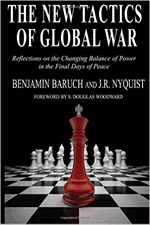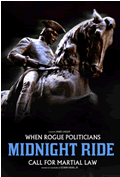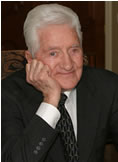 By
Don Fotheringham
By
Don Fotheringham
November 23, 2016
NewsWithViews.com
There seems to be needless concern over Article V, the amending clause of the U.S. Constitution. Both friend and foe of the Constitution complain that, while the Founding Fathers gave the people a way to initiate the convention process, they dropped the ball by failing to establish procedures and regulations for the convention itself.
Was the omission of regulations a mistake? No. Article V is wisely, purposely, and deliberately vague. Those who complain that our founders left Article V strangely incomplete, fail to understand the most fundamental principle of a free and sovereign people.
Constitutional conventions are the government-making systems of free citizens. Conventions are sovereign assemblies. They comprise all power, including the power to establish the agenda, the rules, the regulations, the ratifying method, and all procedures by which the people might create, modify, or abolish their government. The convention system is the concentration of sovereign power by which "WE THE PEOPLE….[did] ordain and establish this Constitution for the United States of America."
Why does Article V lack instructions for future conventions? — because no sitting convention can dictate to the next convention. The 1787 Convention could not make regulations for the next convention because the next convention would be just a sovereign as the first Convention — just as free to make its own rules as was the Convention at Philadelphia in 1787. For that reason Article V is purposely, deliberately, and brilliantly vague.
The following is found in the Records of the Federal Convention of 1787:
Mr. Madison did not see why Congress would not be as much bound to propose amendments applied for by two-thirds of the States as to call a Convention on the like application. He saw no objection however against providing a Convention for the purpose of amendments, except only that difficulties might arise as to the form, the quorum, and etc. which in Constitutional regulations ought to be as much as possible avoided. (author's emphasis)
Why, despite foreseeable difficulties, should constitutional regulations be avoided? — because, as we have already noted, today's convention cannot establish procedures for tomorrow's convention. For that reason Article V requires the state legislatures only to apply, only to initiate the convention process. Article V provides no instructions regarding the form, the quorum, or regulations regarding the control of the convention which the state is simply asking Congress to call. The reason for this is simple: State legislatures have only the statutory power granted by their state constitutions; they have no structural authority, no government-making power.
As a general rule, when one principle is understood, it casts a little light on related principles. For example: State legislatures are not greater than their creators. This principle was affirmed during the 1787 Convention while the deputies were considering resolutions on who should ratify the new plan.
The record states:
Col. Mason considered a reference of the plan to the authority of the people as one of the most important and essential of the Resolutions. The Legislatures have no power to ratify it. They are the mere creatures of the State Constitutions, and cannot be greater than their creators…. Whither then must we resort? To the people with whom all power remains that has not been given up in the Constitutions derived from them. It was of great moment he observed that this doctrine should be cherished as the basis of free Government.
During that same discussion (July 23) James Madison made a similar observation:
Mr. Madison thought it clear that the Legislatures were incompetent to the proposed changes. These changes would make essential inroads on the State constitutions, and it would be a novel and dangerous doctrine that a Legislature could change the constitution under which it held its existence.
The basis of free government is that neither the legislature nor the Congress can determine the power and scope of the Constitution to which they owe their existence. A system under which lawmakers determine the limits of their power is the definition of a dictatorship. The doctrine that legislatures were not qualified to legislate changes in the constitutions under which they serve, was well-established at the founding of our country.
Today's state legislators who seek to bring about a "limited" convention ignore the fact that during the first 100 years of American history all state applications for a convention were brilliantly vague — purposely absent even the subject for which the convention had been called.
A constitutional convention is not "simply an extension of the state legislature." This widely asserted idea is a corruption of the authority of a free and sovereign people. Only the people have government-making and government-modifying authority. A state legislator has only the powers delegated to him by his state constitution, which most assuredly excludes the power to regulate a constitutional convention, or make rules for a "convention of states," or to run an "Article V convention," or to exercise structural authority in any form or under any pretext.
A state's application for a convention that does anything more than initiate the convention process, as required by Article V, amounts to a usurpation of the authority of the people who alone have power to set the terms and determine the scope of their convention. Government is nothing more than the creature and cannot be greater than its creator.
Most current applications for a convention contain rules, regulations, and limitations on the purpose and scope of the requested convention. The "limitation language" in these bills is calculated to allay the very real concerns of state legislators who have been reluctant to support the uncharted road to a modern convention.
|
|
In addition to illegal (completely unenforceable) limitations contained in the state resolutions, the convention lobby is pushing "delegate responsibility" bills that impose severe penalties on convention delegates who might stray into constitutional changes not specifically authorized by the state's resolution. It would be hard to find a more serious violation of the doctrine of civilian sovereignty than is found in such bills. Convention limitation bills, in any form, constitute the "novel and dangerous doctrine" of which James Madison has spoken.
It is a curious thing that after 227 years the convention lobby has "just discovered" that state legislatures have an amazing array of powers unknown to America's Founding Fathers. And it is equally curious that the convention lobby ignores the authority of a sovereign people which in 1787 was "cherished as the basis of free government."
Please, click on "Mass E-mailing" below and send this article to all your friends.
© 2016 Don Fotheringham - All Rights Reserved
Following the attack on Pearl Harbor, sixteen-year-old Don Fotheringham enlisted in the Marine Corps and fought in the Pacific islands. After the war he was alarmed by U.S. foreign policy that gave the communists much of what our military had fought for. So Don enrolled at the University of Utah, thinking he could correct such problems with an education in Political Science. What a disappointment. Even the professors upheld America's pro-communist policy!
Fotheringham's chance to stand up for America came in 1958 when Robert Welch formed the John Birch Society. Don spent 22 years on the staff of the JBS, serving as its constitutional advisor. In 1983, when the U.S. was on the verge of a new constitutional convention, Don was assigned to organize the opposition and block this terribly rash movement. During that time — and since his retirement (Don will soon be 90) — he has testified in 32 state legislative hearings blocking new legislation and repealing existing resolutions that apply for a convention. His success in reversing these measures has been exceptional.
Don Fotheringham is author of the well-researched book, The President Makers (available at amazon.com). He lectures widely, writes for freedomfirstsociety.org, and serves on its Board of Directors.
E-Mail: donfothz@scinternet.net




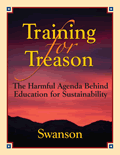



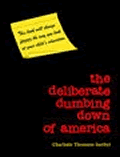
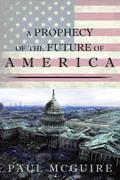




 Share
This Article
Share
This Article
